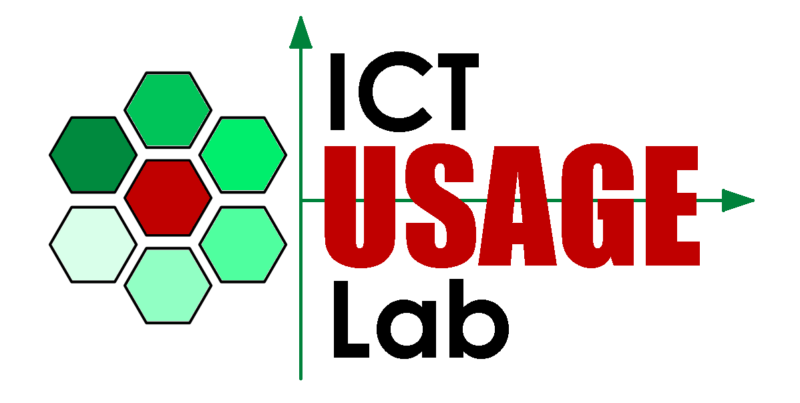Historically Labelled Living Labs
Since its formation in 2006 ENoLL has labelled 440+ Living Labs. See the full list of Labelled Living Labs who are not active members of the network.
 ICT Usage Lab
ICT Usage Lab
Following the “Laboratoire des Usages” of Sophia Antipolis which was a Scientific Interest Group between academic and industrial partners (2000-2006), the ICT Usage Labs got his label from ENoLL in July 2006 and became the first Living Lab in France. It was restructured in 2008 by four creating members: CSTB (Centre Scientifique et Technique du Bâtiment), Orange Labs, Sophia Antipolis University (UNSA) and INRIA. Gathering territories, SMEs, users communities and research teams dedicated to the use of ICT and innovation, the cluster develops through its projects a Living Lab approach to co-design of new products and services with users and to usage data analysis. ICT Usage Lab is one of the creating members of the European Network of Living Labs (ENoLL) Association.
Founding members:
Description of Concept
The ICT Usage Labs promotes multidisciplinary studies of ICT usage in innovation context and coordinates researchers coming from different domains – knowledge engineers, economists, computer scientists, psychologists, and sociologists. In our living lab we aim at sharing ours infrastructures, our experience and our tools, for instance through the development of the FOCUS platform which provides to the Living Labs community software tools for usage mining and analysis. Our infrastructures gather the buildings, laboratories and tools (software & hardware) of our partners : an immersive infrastructure for 3D experiments, a platform of mobile devices for simulated environment (Ubiquarium), a fully instrumented apartment (Gerhome lab) to design and develop smart building services such as AAL digital services supporting ageing at home: enhancing security, comfort, well-being of the elderly. The main targeted territory is the French Riviera, a multi-cultural and innovative environment.
The ICT Usage Labs has also close relationships with the actors of innovation in Provence – Alpes Cote d’Azur area :
References and Track Record
Most recent projects:
Fireball (FP7 ICT call 5 – Coordination action): methodologies and approaches in the domains of Future Internet research and experimentation test-beds and user driven open innovation towards successful innovation in “Smart City” environments.
Elliot (FP7 ICT call 5 – STREP) : using public data about environmental data to set up with citizen new public services available on the web. Data will be provided by mobile sensors (green watches, instrumented electrical vehicles) and existing collector stations
TIC TAC (Predit + Ademe[1]): Through an active involvement of travellers in the co-design process, the goal is to set up an advance information system providing reliable a real time timetable information
Ecoffices (Pacalabs call 2): ecological challenge in a professional context. Offices are instrumented and actions on various devices are recorded to track eco-behavior of the employees. “Bonus” and “malus” points are attributed according to respect of good practices.
Hotel-ref-Paca (Pacalabs call 2) : In collaboration with experts of web referencing (Perferencement) the goal of the project is to rise touristic attractiveness of the countryside just inland from Nice by involving tourists and accommodation professionals in the discovery of new rules for accommodation web referencing.
Gerhome – GerhomeLabs (Pacalabs call 1 + FUI): a project aiming at designing and developing AAL digital services supporting ageing at home: enhancing security, comfort, well-being of the elderly; Several trials with elderly volunteers are ongoing to validate the solutions, especially in private homes and rooms in nursing homes (GERHOME Labs), but also in hospital rooms in gerontology units (CIUS project – Healthcare innovation and usage center)Transportation
CDISOD (Color Inria Action): In collaboration with a Think tank (Fing) and organizations concerned with sustainable development (Adem, CeteM), the goal of project is to open access to public data of a territory and to involve citizen in the design of new public services available on the web.
[1] French National Agency for a better control of Energy Consumption

Since its formation in 2006 ENoLL has labelled 440+ Living Labs. See the full list of Labelled Living Labs who are not active members of the network.